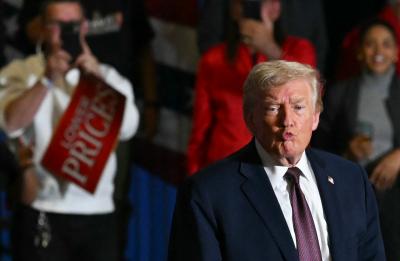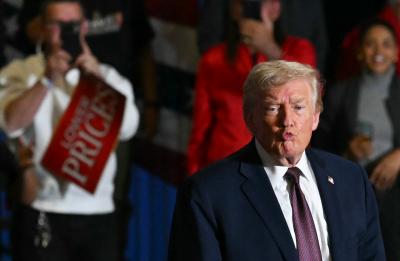Once again, discussions focus on the "day after" in the region, or even the days that follow. No day resembles another, whether in terms of the envisioned solutions or their timeline. It remains unclear if the guaranteeing actors can, under current circumstances, ensure the implementation of the upcoming perspectives.
What About Lebanon's Future?
Answers vary depending on who you ask. While some responses share common themes, they remain open to divergent interpretations. Take, for instance, the phrase "implementation of UN Security Council Resolution 1701 in all its dimensions." The differences in interpreting these "dimensions" are striking.
What About Gaza and the Palestinian Authority?
For Gaza and the Palestinian Authority as a whole, visions also differ depending on perspectives. Yet, one major sticking point persists: the question of the Palestinian state. From its borders to its sovereignty, its relationship with Israel (both the government and settlers), and the ambiguous notion of "Palestinian rights," disagreements run deep.
A Concept in Decline?
Is the viability of a Palestinian state still relevant, and what are its chances of realization?
The Biden administration, in its remaining time, faces challenges linked to this question. Calls are increasing, including from members of Congress, to renew diplomatic efforts toward a two-state solution, with an independent Palestinian state alongside Israel. However, recent events have made this vision more difficult to achieve, if not nearly unrealistic.
Nineteen Democratic senators have urged Biden to adopt a more committed stance toward the two-state solution, advocating for a bold and public framework that recognizes a demilitarized Palestinian state governed by a reformed Palestinian Authority. This request reflects growing Democratic concerns about the human cost of the conflict and its humanitarian impact. It also highlights the need for American leadership to revive peace negotiations and tackle obstacles to creating a Palestinian state, such as Israeli settlement expansion and settler violence.
Two Major Challenges
The first obstacle lies in the stance of successive Israeli governments, particularly those led by Benjamin Netanyahu, which have refused to make concessions facilitating the creation of a Palestinian state. Netanyahu views any form of autonomy—an unacceptable alternative for Palestinians—as a threat rather than a peace opportunity.
The second challenge is the lack of internal Palestinian unity. While the Palestinian Authority supports the two-state solution, Hamas categorically rejects it. It is widely known that Netanyahu has exploited this division to undermine the idea of a Palestinian state. Hamas's attack on October 7, 2023, gave Netanyahu the opportunity to launch a response he sees as having obliterated any chance of a two-state solution.
Biden's Potential Role
Joe Biden has several strategic options that do not require congressional approval, according to Jonah Blank, Biden’s former advisor on Asia and Islamic communities. These include officially recognizing the Palestinian state diplomatically and supporting Palestinian Authority reforms to bolster its legitimacy. Biden could also pressure Israel by conditioning U.S. military aid on adherence to international norms concerning settlements and military actions.
Simultaneously, the U.S. could strengthen its collaboration with regional partners, particularly Arab countries supporting the two-state solution, to build a broader coalition for peace.
An Uncertain Future Under Trump
The prospect of a second Donald Trump term raises numerous concerns. During his first term, Trump gave Israel what no other president had offered, ignoring the two-state solution and favoring pro-Israeli policies such as moving the U.S. Embassy to Jerusalem and recognizing the annexation of the Golan Heights.
A Trump return could mean increased support for Israeli expansion in the West Bank and further marginalization of Palestinian aspirations. Trump might also continue advancing the Abraham Accords without addressing the Palestinian state, paving the way for a one-state solution with limited Palestinian autonomy.
While the two-state solution remains theoretically possible, its chances of realization under a potential second Trump term seem nearly non-existent. Likely policies would favor Israeli interests at the expense of Palestinian rights, deepening divisions and undermining hopes for lasting peace.
Please post your comments on:
[email protected]
 Politics
Politics













